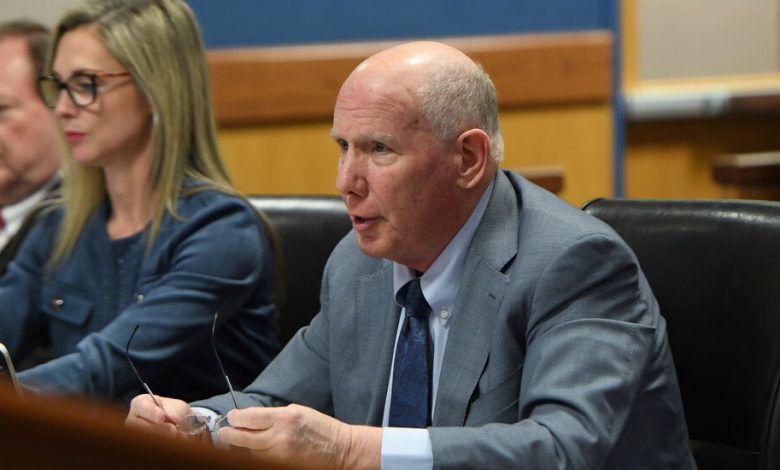Trump’s Defense Team Argues First Amendment Prohibits Georgia Charges

Donald J. Trump’s lead defense lawyer in Georgia argued in court on Thursday that the former president’s criminal indictment should be dismissed because it was based on comments that Mr. Trump had made about the 2020 presidential election that were protected by the First Amendment.
The lawyer, Steven H. Sadow, said that Mr. Trump’s comments, writings and internet posts after the November 2020 election amounted to political speech, which courts have considered sacrosanct under the First Amendment.
“Take out the political speech, no charges,” Mr. Sadow said at the hearing in a courtroom in downtown Atlanta.
Fulton County prosecutors pushed back, arguing that Mr. Trump’s statements were part of a broad conspiracy to illegally overturn his election loss. The scheme is outlined in a sweeping racketeering indictment that was handed up in August and that named Mr. Trump alongside 18 co-defendants. Four of the co-defendants have since pleaded guilty.
The argument that First Amendment grounds should block Mr. Trump from being prosecuted criminally for efforts to overturn the 2020 election results has previously been rejected by a U.S. District Court judge, Tanya Chutkan, in a separate federal prosecution that is unfolding in Washington, D.C.
Georgia prosecutors noted the earlier ruling in court on Thursday. They also argued that Mr. Trump’s comments should not be considered on their own, but as part of a series of actions aimed to advance crimes including racketeering.
Mr. Trump’s statements were “employed as part of the pattern of criminal conduct in numerous ways, so there’s nowhere to go,” said Donald Wakeford, a prosecutor in the Fulton County district attorney’s office.
Scott McAfee, the presiding judge in the case, did not make a ruling from the bench on Thursday.
The hearing was the first to take place since the Georgia case took a detour after defense lawyers asserted that Fulton County’s district attorney, Fani T. Willis, had created a conflict of interest when she engaged in a romantic relationship with Nathan J. Wade, a lawyer she hired to manage the prosecution team.
This month, Judge McAfee ruled that an “actual” conflict of interest did not exist but that “the appearance of impropriety” remained. To solve the problem, the judge gave Ms. Willis a choice: either Mr. Wade could step away from the case, or she and her entire office could do so. Mr. Wade resigned from his job as special prosecutor a few hours later.
Defense lawyers are seeking to appeal the judge’s ruling on the disqualification matter and reassert their argument that Ms. Willis and her office ought to be removed from the case. Judge McAfee has said that the issue merits review by the Georgia Court of Appeals. The appeals court itself must now decide whether to take the matter.




